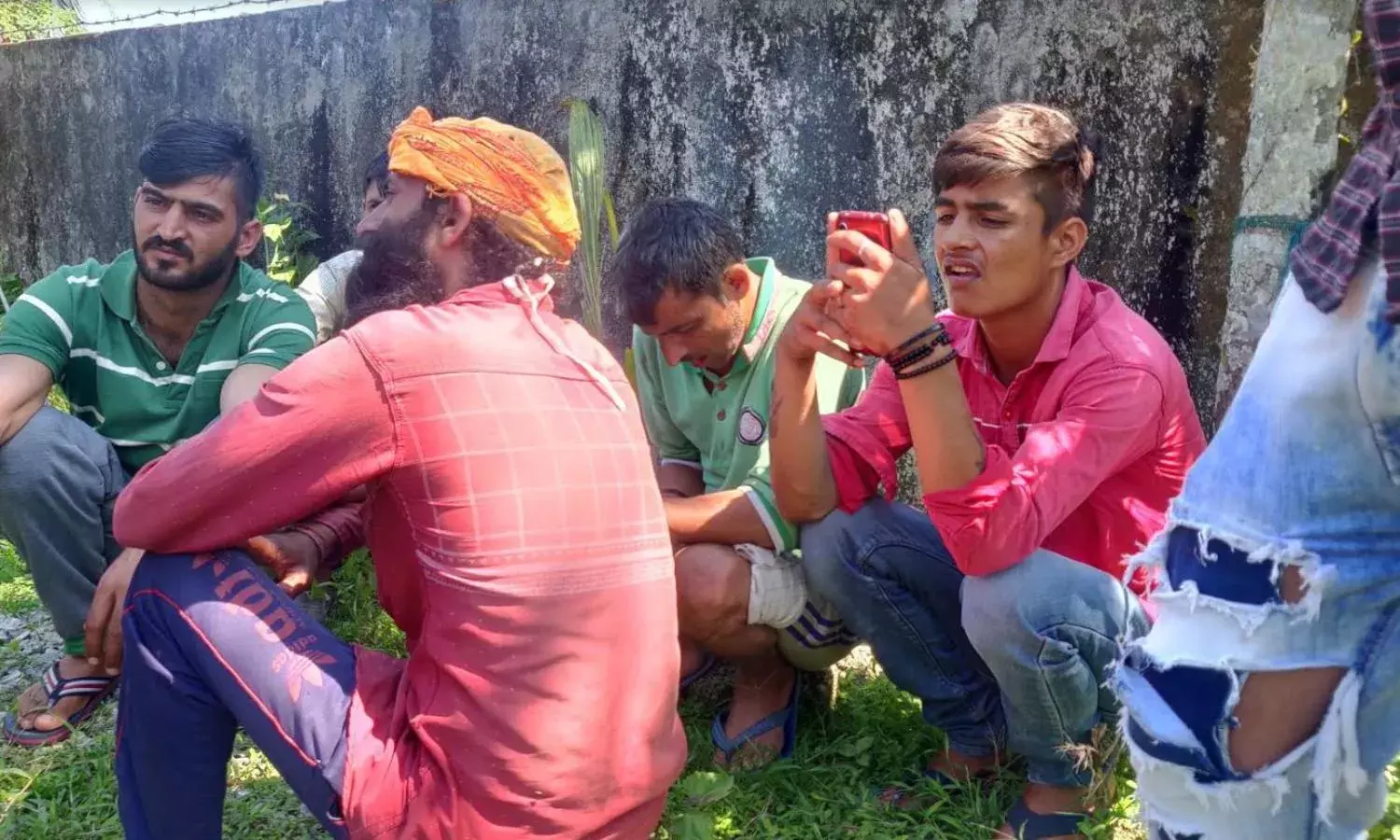
ITANAGAR: It’s a sweltering May Sunday. The sun is beating down with a vengeance not seen until a few days ago. Summer, it seems, has announced its arrival. And no one seems less suited to deal with the heat than Surjit Singh and the 34 other migrant workers from Jammu who arrived here in January, thinking they would have returned to the cool climes of their homes by now as they had in the past.
2020 was to be different.
As the nationwide lockdown came into force on March 25 as India prepared to deal with the COVID-19 pandemic, migrant workers across the country found themselves stranded hundreds of miles away from their homes.
With no jobs and food running on short supply, the return of migrants to their home states continues to play out on a daily basis.
In Arunachal Pradesh, the situation is no different with most labourers from the neighbouring state of Assam making their way back even though the state government has set up specialised camps for migrant daily wage-earners.
With a population of just over 11 lakh, the state’s capital and urban centres play host to a large migrant workforce, including seemingly small business owners and daily wage-earners, who primarily tend to be from the nearby districts of Assam, Cooch Behar and Siliguri of Bengal, and Sitamarhi of Bihar.
There are also a large number of migrants from the southern states working as teachers.
Marwari families that are literally running the region’s economy for several decades tend to call Guwahati, Tezpur, and Tinsukia in Assam home.
Apart from the odd shawl-seller walking around in the ‘pheran’, the sight of a person from Jammu & Kashmir in Arunachal Pradesh is a rare one.
And to see one not selling shawls, even rarer.
Barely five kilometres from the inter-state boundary with Assam at Hollongi are three makeshift ‘labour camps’ housing 71 migrant workers- 13 from Himachal Pradesh’s Chamba district in one and 58 from Jammu’s Ramban district in two camps.
On this summer day, men, young and old, are loitering around looking into their phones trying to pass the time. With work at a halt, there is not much else to do.
The men say were brought here by local sub-contractors of Tata Projects Ltd and Sterlite Power to set up a 132-kV power transmission line. They were meant to have completed their work by March 31 and should have been back home by now.
This had been the norm in the past. Several of the men have had experience working in Assam and Sikkim for private contractors.
But even in the absence of any written agreement, and while they hold resentments that they are not home, the anger is not as palpable as the disappointment is.
The men in the camp we visited had 35 men from Jammu, almost all of whom wanted to return home for different reasons.
Arijit Singh, sporting tattered denim pants was sitting under the shade of a tree at the camp. He said that the rising temperature was getting to him. Surjit Singh had the same complaint.
For the older lot, such as Chain Singh and Om Singh, the concerns centre around familial matters.
Om Singh says that he has forgotten what his parents and children look like.
As for Chain Singh, he appears to have no peace.
“Till the time we get back to Jammu, we will have no relief,” he says.
The oldest in this particular camp with 34 others is Chain Singh.
When I ask him about his age and address, he shows me his Aadhar card.
‘15/01/1959’ it reads against his date of birth.
He should be 61, at least by official count.
His receding hairline and grey facial hair certainly seems to suggest so.
He has seven children, one of whom- Sanjiv -is with him at the camp. His other son, Ramesh is at home in Ramban and works as a cook.
Chain says that he has three daughters, two of whom are married and the youngest works as a seamstress back in Ramban.
“But due to the lockdown, she has not had any work,” he says.
He doesn’t mention the names of any of his daughters.
The elderly man comes across as the most emotional of the lot as he breaks down into tears and says that he has not been paid by the firm that had hired him, before quickly retracting and clarifying that he has not been paid his salary for the last month.
The men say that they have not had any response from the Jammu & Kashmir administration yet. The only person of administrative authority they have spoken to is Chain Singh’s youngest brother who is a ‘sarpanch’ of a village in Ramban.
They are at present relying on the generosity of the landowner of the camp and local residents who’ve reached out to them with food and other items. Recently, a group of people came together to purchase new sandals for them.
Many of them are also suffering from scabies and have received medication from the state chapter of the India Medical Association.
The state government and the National Disaster Relief Force have reached out to them with essential supplies.
With no positive cases in Arunachal Pradesh, the men realise that they are relatively safer from contracting the COVID-19 than they would be in Jammu & Kashmir. Yet, many long to go home.
As on Friday, all 58 of the men from Ramban had been moved to a school in Yupia where they hope to live in better conditions.
The yearning to go home, however, still remains.
Speaking over the phone, Umesh Singh said that they are yet to hear anything from the authorities back home, claiming that despite attempts to reach out to the administration in Ramban, they have not had any positive response yet.

